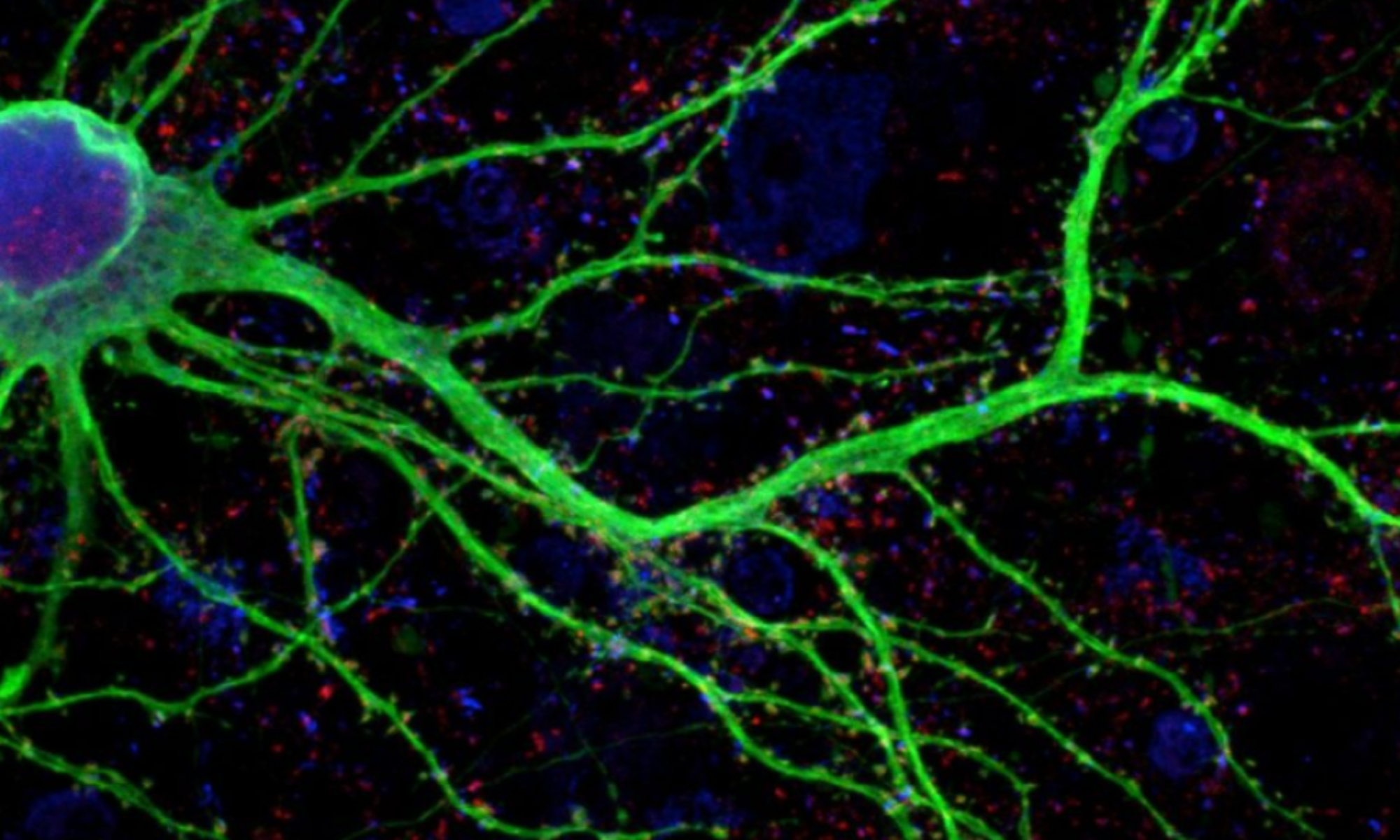Below are brief presentations of the 9 projects that our M1 students carried out for the UE ProSkills in 2022-2023, including links to the material that they produced as output of their projects (e.g. videos, podcasts, board games, etc.)
Epilepsy: Beyond Seizures
by Carla MONIN, Hatim AFRI, Maxime GANDY and Myriam MACHKOUR
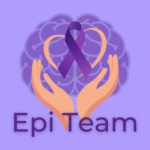
Step into the world of epilepsy awareness with our groundbreaking project! Epilepsy affects millions of lives worldwide, yet it remains shrouded in misconceptions. Our mission? To shed light on this neurological condition, educate the public, and ignite a positive change in perception. Introducing our captivating 25 minutes documentary that delves deep into the diverse facets of epilepsy. Join us as we uncover the various types of epilepsy, demystify its symptoms, explore its underlying causes, and unveil the array of treatments available. We leave no stone unturned, from medications and surgeries to lifestyle adjustments and support groups. Our documentary is a gateway to epilepsy awareness, aiming to reach people from all walks of life. Whether you’re a curious mind seeking knowledge or simply interested in understanding epilepsy, our project is designed for you. We aim to shed light on the true nature of epilepsy, providing insights into how to manage a seizure if you ever encounter one and offering a deeper understanding of what it truly means to live with epilepsy. Behind our project’s success lies a team of passionate individuals, including health professionals, researchers, and patients and their families. Together, we’ve crafted an informative and visually stunning journey that captivates hearts and minds. Embark on this enlightening adventure with us. Brace yourself for a documentary that will challenge preconceptions and leave an indelible mark on your understanding of epilepsy. Together, we can make a difference, one viewer at a time. Join the movement and let’s break the barriers surrounding epilepsy !
Links : https://youtu.be/JcdAl2lStvI (youtube)
Neurotopics : podcast team
by Grégory ACACIA, Thomas GERAUD and Laurine MILON
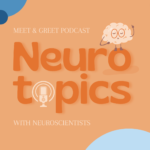
Three students of the Master 1 Neurosciences in Lyon, France and their guest welcome you in this episode to discuss the diversity of people, roles, and actions that take place every day in the world of neurosciences. Like any research field, it comprises various profiles and people who work together to improve world knowledge and who face challenges and difficulties they need to overcome. In the first episode of this podcast: “Le maître-mot dans la recherche, c’est la persévérance”, Camille FERDENZI-LEMAITRE, a researcher at the Lyon Neuroscience Research Center (CRNL), shares with us her atypical academic journey. She is also sharing her experience as a fellow research associate within the Neurobiology and Plasticity of Olfactory Perception (NEUROPOP) team. She works on the role of body odor in social interactions, and seeks to better understand individual variability in odor perception. During this 28-minutes long episode, this discussion passes through interrogations like what is a researcher? What does your day look like? Is there a specific educational path? Is it hard? This first episode has been published on several streaming platforms, and all our links are gathered in one simple place (see « Links », below). As our Podcast project is part of a global teamwork production, called Neurotopics, and as it aims to be pursued over time, you can follow our common Instagram account @neuro_topics to be alerted whenever new episodes are published
Links : https://linktr.ee/neurotopics
Breaking down the stigma of neuropsychiatric disorders
by Clémence BOBICHON, Marine DELMAS, Hugo RATELADE and Anatole LANG

Neuropsychiatric diseases are often stigmatized in the general population due to a lack of knowledge by people. This stigmatization leads to an increase of discrimination (avoidance, social distancing) towards people suffering from these disorders, it may influence personal identity and independence in the long-term, as adolescence, which is a key stage in the development of autonomy. It is then crucial to deconstruct this stigma because this form of discrimination is the fourth barrier of help-seeking. They must be treated as soon as possible for better care and better recovery. That’s what we aim to do with this project in providing better understanding of neuropsychiatric disorders. We created four videos at the TikTok’s format aiming to deconstruct stigmatization of the diseases by giving a definition of the disease, its main characteristics, its origin, to sensibilize the population about these diseases. The videos have been posted on social media to sensibilize especially the young population to raise awareness among them, as many studies have shown that they are the most affected by peer stigma and that they will become the future generation of adult society. Social media and especially TikTok has been chosen as it is the most popular social media used by the young population that will allow us to touch as many people as possible. Each of the four videos treat a different subject that has been chosen on the basis of the most stigmatized neuropsychiatric disorders. We talked about major depressive disorder, bipolar disorder, schizophrenia and general anxiety
Links : depressive disorder, bipolar disorder, schizophrenia and general anxiety (videos on TikTok)
Neurocast
by Clémence BUFFAT , Caroline LUSURIER and Océane PAGE
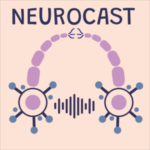
The Neurocast project is a series of short podcasts with the aim of introducing the field of research in Neurosciences to high school and undergraduate students. First, we address in a unique way the academic and career paths that ultimately lead to work in the research in Neurosciences. In addition, we wish to introduce Neuroscience research which is poorly known by the general public and thus generally speaking very mysterious because of the complexity of the brain functioning. Finally we want to shed light on what life is like as a PhD student and a researcher in a Neuroscience research laboratory. Our uniqueness lies in the fact that for each step (bachelor, master, PhD, post-doc and researcher) we adopt internal perspectives through interviews with the people most likely to testify: ourselves, master’s students (who just graduate Bachelor), a PhD student and finally a researcher (who had previous experience as post-doc). We therefore offer a detailed picture of what life is like at each of these steps. We have paid particular attention to describing in detail our current curriculum here in the master 1 of Neurosciences of the University Claude Bernard, in Lyon 1. In the last two podcasts, we invited a PhD student as well as a researcher from the Stem Cell and Brain research Institute in Lyon which talked about their interests for neurosciences, the activities of a PhD or researcher in a lab, and more particularly their project of research
Links : https://open.spotify.com/show/69LazRHOK3udppWNdLrkaf (Spotify)
Neurotopics : instagram team
by Maëlys SOUILHOL, Lilas ROBERT and Maddalena TAMELLINI
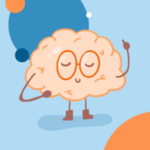
Are you interested in neuroscience but struggling to find accessible content to deepen your knowledge? Look no further than Neurotopics! Neurotopics is an Instagram account dedicated to making neuroscience engaging and understandable, especially for students. We present neuroscience content and the latest findings in a concise and easy to understand manner, using attractive designs and illustrations to demystify this complex field. Our English content is worldwide friendly, providing a valuable opportunity for non-native speakers to develop their scientific language skills from an early stage. It also facilitates the acquisition of specific scientific vocabulary. Currently, our profile features several posts on sleep, covering topics such as physiological sleep, polysomnography, and pathological sleep. Additionally, we have collaborated with the Neurotopics podcast team to bring an added dimension to our account. Through this collaboration, we have the privilege of directly engaging with neuroscience researchers who share their backgrounds, career paths, and research interests with us. Our long-term goal is to cover a wide range of neuroscience topics, including neuroimaging, neuronal functioning, brain disorders, and diseases, while keeping up with the latest discoveries in the field. We aspire for our account to become a comprehensive overview of what we, as neuroscience students, learn on a daily basis. So, what are you waiting for? Join us on Instagram: @Neuro_topics! Discover the world of neuroscience through our engaging content and stay updated with the latest insights in the field
Links : https://www.instagram.com/neuro_topics/ (instagram account)
Neuro Interviews
by Myriam OUZNADJI, Ema DARRIEUTORT, Odalys TSCHIHART and Florent BASIEZ
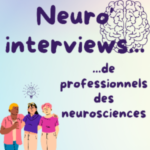
The Neuro-interviews project aims to answer student’s questions about possibilities of careers in Neuroscience, by the interview of various professionals of the field. We first noted that through our education, we have inquiries about the possibilities after a Neuroscience Master, notably in the public and private sector of Neuroscience. Our goal was to solicit students from the Science field (Bachelor and Master’s degree), to participate in our project by asking questions about the professional’s career paths, missions, and the professional/personal life in general. To do so, we created a Google Form to be diffused to students via their referents, so that they were free to write down their interrogations. From there, we conducted a series of interviews with professionals from the academy (Camille Giacometti, doctorate student; Dr. Fadila Hadj-Bouziane; Dr. Ouria Benyahya) and from the private sector (Elénore Henry, in thesis Cifre at Stellantis company). The final output of our project consists in a brochure that summarizes the answers to the students’ questions, in a clear and illustrative way
Links : brochure (pdf)
La Fuite du Cerveau
by Flora BERTRAND, Elsa LAZZARO, Pascal BICHEREL and Camille BALAZUC
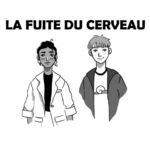
Four students of the Master 1 Neurosciences interested in technical advances of this field aimed to create a comic book on scientific popularisation to propose to the public a different view of neuroscience. This short comic book about the fMRI technique, a well-known brain imaging technique in the neuroscience field, is called “La Fuite du Cerveau”. This is the fruit of the combination of the drawing abilities, knowledge developed during the master year and the personal skills of the students. This comic book is open to all who would like to understand how this neuroimaging technique is carried on. Neither background in science, nor previous knowledge in neuroscience are necessary for the reader to follow the scenario, only an interest in the subject will be required to enjoy the reading. This media aims to promote the opportunity to participate in such a study. By following the journey of a man who is going to have an fMRI session in a neuroscience laboratory, you will be able to understand how an fMRI is done, and how it is working. Explaining mainly technical advantages of the technique and illustrating its application on an everyday life related task, the main objective is to make accessible the understanding of the fMRI and de-construct received opinions about the subject. Be warned, you will ask to participate in such an experiment at the end of your reading!
Links : comic book (pdf)
Pastry' senses
by Marion CARPENTIER, Tessa MONDON and Maÿlis DUMAS
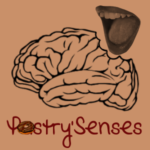
The project consisted of an intervention in a CAP pastry class at a professional high school. The objective was to link students’ professional expertise with our specific expertise in neurosciences. Neurosciences are known for research, but today, private companies are increasingly interested in it and neurosciences research centres are being created in various fields, including gastronomy. For example, the Institut Paul Bocuse research centre conducts multidisciplinary research on food. Moreover, collaborations between neuroscientists and chefs (pastry chefs) now exist, notably on the theme of therapies for diseases with taste and eating disorders. This presentation gave them some insight into what is currently being done in research by involving them directly. Thus, we wanted to pass on knowledge in the most playful way in the form of an escape game with workshops, commonly used in sensory neurosciences analysis, around the senses involved in the culinary experience, mainly gustation and olfaction. The notion of multi-sensory integration was also addressed by highlighting the involvement of other senses, notably vision, in pastry. The plot was based on the chemotherapy treatment for cancer patients which leads to taste alterations. Their objectives as neuro-pastry chefs were to find out what causes these alterations and what solution could counteract the effects of the chemotherapy
Links : https://youtu.be/ad4FIC5ETjQ (youtube)
Playboard games on Neurosciences
by Laurie DINET, Samar NADERI and Marie ROCHAS
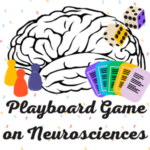
WHY PLAY BOARD GAMES? Board games offer numerous benefits. For children, aside from their educational value, they enhance concentration and memory skills. They also teach youngsters essential life skills such as teamwork, sportsmanship, emotional management, patience, and oral expression. In adults, board games help preserve memory and slow down the onset of conditions like Alzheimer’s disease. And for everyone, they foster social bonds, create a joyful and convivial atmosphere, reduce stress, and promote happiness. Moreover, they provide a much-needed break from screens, allowing people to immerse themselves in real-world moments for a few hours. OUR SOLUTION? We have developed a board game centered around neuroscience, designed for all audiences, regardless of prior knowledge on the subject. The game covers a wide range of topics, with question cards grouped into five themes: the senses, diseases and symptoms, everyday life, emotions and cognition, and group challenges. Accompanying the game is a booklet containing the rules and answers, offering additional information to enrich everyone’s knowledge while having a great time. The objective is to be the first to reach the finish line and become the winner! So don’t wait and download it!
Links : printable game (pdf)
